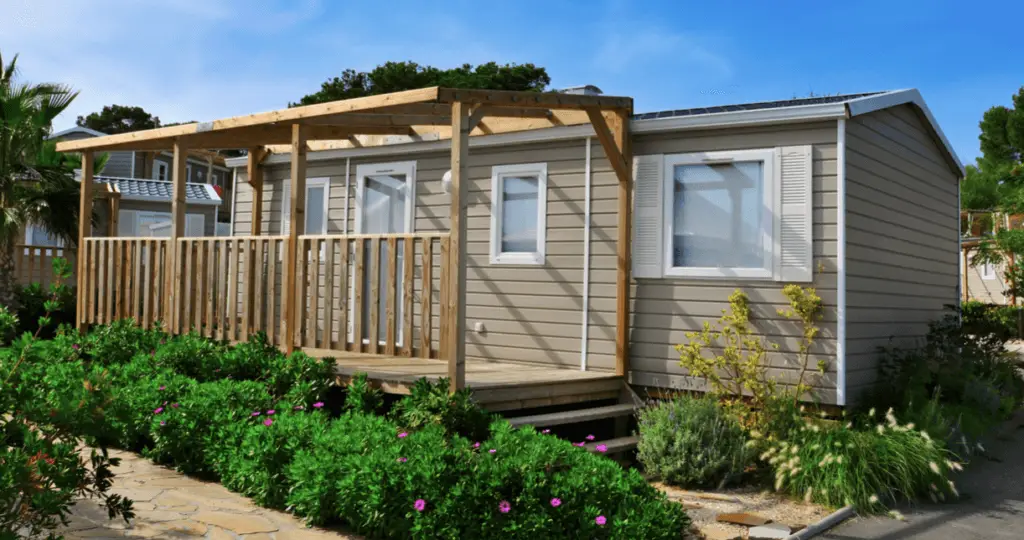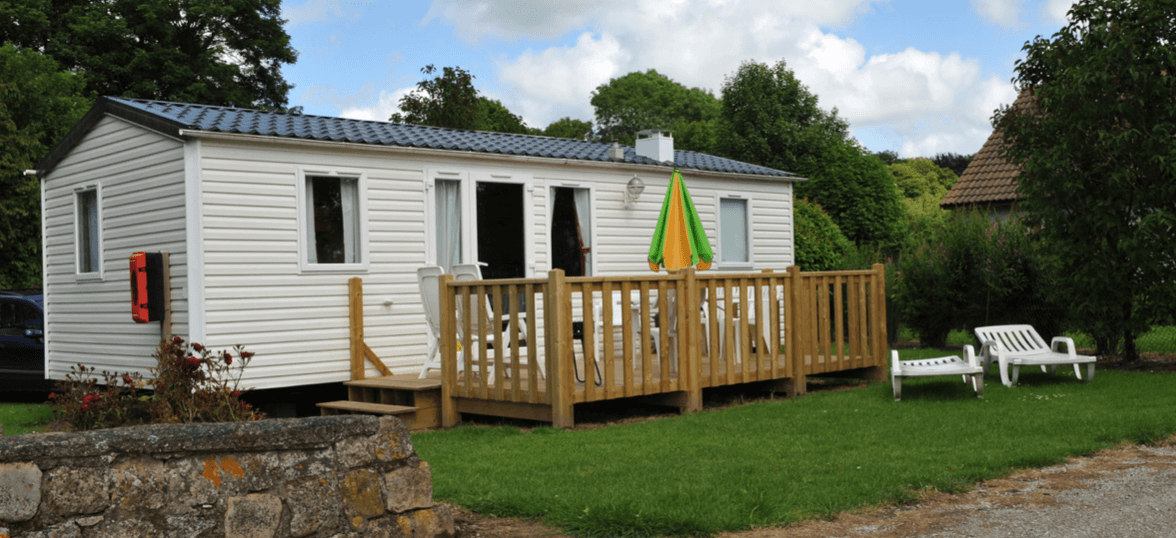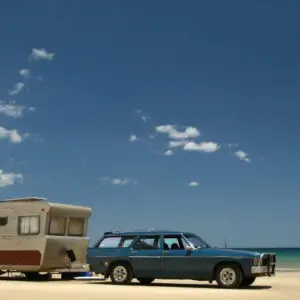Can You Put a Static Caravan On Your Own Land? Static caravans seem to be very popular as a holiday choice for many people wanting to take their holidays in the UK. If you own a piece of land, you may be wondering if you can put a static caravan on it. While there are no definitive rules around this, there are a few things to consider before making your decision. So, Can You Put a Static Caravan On Your Own Land?
First and foremost, you will need to check with your local council to see if any planning restrictions prevent you from putting a caravan on your land. Each council has different rules, so it’s important to check before proceeding. The planning authorities may issue precise guidelines for how your site must be planned out and what kind of caravan you can use.
There is no law prohibiting you from living in a static caravan within the boundaries of your home. The boundaries include the garden and driveway of your home. The regulations governing using a static caravan on your private property differ based on where you reside and how long you plan to stay.
You don’t need a license for the static caravan as long as it is parked in your driveway or garden and the individuals who stay in it are also family members who live on the main property. You also don’t need permission or a license if the caravan is used as extra space for visitors and the home’s primary provisions are utilised.
You must apply for a planning council approval if you want to use the static caravan as a rental property or for a business. Those staying in the static caravan should not use it as their primary residence. You’ll need to acquire approval from the planning council if it’s a permanent residence rather than an addition to your existing home on the land.
Without a permit or a planning license, you can stay inside a caravan on your property for up to 28 days. You will need to apply for a license if you want to stay on the property longer and use the caravan as your primary dwelling. This may be subject to a price and will only be valid for as long as the site has been granted planning permission.
If there are no planning restrictions, you will need to consider whether your land is suitable for a caravan. It should be level and have firm ground and access to water and electricity. If you’re not sure whether your land is suitable, you can always speak to a caravan dealer or manufacturer for advice.
Once you’ve checked that your land is suitable and there are no planning restrictions, you’ll need to buy a caravan that meets your needs, considering size, layout, and amenities.
There is a wide range of caravans available on the market, so take some time to search for one. Once you’ve found the perfect caravan, you can then think about where you would like to position it on your land.
It’s important to remember that you will need to get permission from your local council before connecting a caravan to mains water and electricity. This is usually done via a planning council’s approval.
If you’re still unsure whether putting a caravan on your land is the right decision for you, why not speak to your local caravan dealer or manufacturer? They will be able to offer you more advice and guidance on the matter.

Can You Put a Static Caravan On Your Own Land? Is it possible for someone else to live in a static caravan on my property?
The rules for allowing someone else to live in a static caravan on your property are the same. You do not require authorisation if they are seasonal workers who don’t live there all year. However, some councils have different restrictions, so it’s always good to check with your local government first.
How long can you stay in a caravan on your own land?
You are legally entitled to stay in a caravan on your own land for up to 28 days without issue. However, if you plan to use it as a permanent residence rather than an addition to your existing home on the land, you’ll need to acquire approval from the planning council.
What rules and limitations apply to static caravans on your own property?
Your static caravan may be subject to various rules imposed by the planning council. A static caravan won’t be authorised for somebody having less than an acre of land. There are a few more limitations:
You may not be permitted to live within a specified distance of your neighbours or businesses in certain circumstances.
The caravan structure must meet the legal definition of a caravan, determined by its mobility, size, and construction.
The static caravan must be equipped with adequate toilet facilities and sanitary washing that the council has authorised.
You can rent a static caravan on your property to live in while you develop or renovate your permanent home.
In what cases do you need planning permission if you want to put a static caravan on your property?
If you want to build a static caravan, you’ll require planning permission if:
It is intended to be used as a primary residence.
Rent it out to anyone for a fee, either as a vacation or long-term rental.
You want to utilise it for other commercial purposes.
Is it necessary to pay council tax if you own a static caravan?
You won’t have to pay council tax for a holiday static caravan to a local authority council. The caravan will be subject to council tax only if used as your primary residence. If the caravan is only used for holiday purposes, it is exempt from council tax. However, if you rent out your caravan, you may need to pay council tax on the income generated.
How much is council tax on a static caravan?
The amount of council tax on a static caravan in the UK varies depending on several factors. According to the search results, if your static caravan is located on private land and is used as your main residence, you may be required to pay council tax. The amount of council tax you will be required to pay depends on the valuation band of your caravan, which is determined by the Valuation Office Agency. The valuation band is based on the market value of the caravan as of 1st April 1991.
The council tax rates for each valuation band vary by local council and can change from year to year. As an example, for the year 2021-2022, the council tax for a Band A property (the lowest band) in England ranged from £1,065 to £1,516, depending on the local council. It is recommended to check with your local council for specific council tax rates for static caravans on private land in your area.
What are the rules about council tax for a static caravan on private land?
In the UK, the rules about council tax for a static caravan on private land depend on several factors. If your static caravan is located on private land and is used as your main residence, you may be required to pay council tax. However, if your static caravan is not your main residence and is only used for holidays or occasional stays, you will not be required to pay council tax on it.
The rules may vary depending on the local council regulations and the size of the caravan (due to it’s rated value). Additionally, if the caravan is located on a holiday park, it is classified as a commercial property and is not subject to council tax. It is recommended to check with your local council for specific regulations regarding council tax for static caravans on private land in your area.
How close can a caravan be to a boundary?
The minimum distance between a static caravan and a fence is not specified by law. However, the model standards stipulate a 6-metre distance between statics.
Do I need to be aware of any static caravan laws on private land?
Yes, there are several static caravan laws that you should be aware of if you plan to keep a static caravan on private land in the UK. According to the search results, if you own a static caravan on private land, you are responsible for complying with relevant laws and regulations, including planning permission, building regulations, and fire safety regulations.
In addition, you may be required to obtain a site license from your local council if you plan to use the caravan as a permanent residence. Other regulations may include health and safety regulations, waste disposal regulations, and insurance requirements. It is recommended to check with your local council for specific regulations regarding static caravans on private land in your area.
Final Remarks
If you are thinking of putting a static caravan on your property, you should consider a few things first. These include whether your land is suitable, whether there are any planning restrictions, and what size and type of caravan you need.
Once you have all of this information, you can begin searching for the perfect caravan and then start thinking about where you would like to position it on your land.
Also, you might have to get permission from your local council before connecting a caravan to electricity and mains water. To find out more about these requirements for your specific area, it’s a good idea to speak to your local caravan dealer or manufacturer. They will be able to offer you more detailed advice on the matter.



